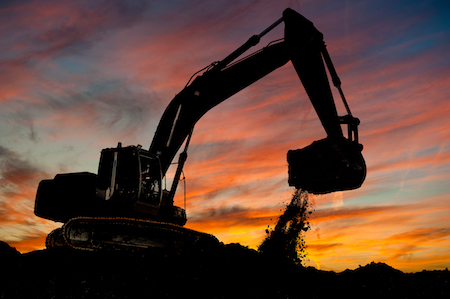Commodities are raw materials that are used to produce goods and services. Metals, energy, agricultural products, and livestock are all examples of commodities. In the past, commodity trading was the domain of large institutional investors like hedge funds and investment banks. However, with the advent of online trading platforms, individuals can now trade commodities just as easily as stocks or bonds. So, can you make money by buying and trading commodities? Let’s take a closer look.
What is a Commodity?
A commodity is a raw material that is used to produce goods or services. These raw materials are standardized so that they can be traded on an exchange. Metals like gold and silver, energy products like oil and natural gas, agricultural products like wheat and corn, and livestock like cattle and hogs are all examples of commodities.
How Do You Trade Commodities?
In the past, commodity trading was done exclusively by large institutional investors like hedge funds, mutual funds, and investment banks. These firms would trade commodities through futures contracts on exchanges like the Chicago Mercantile Exchange (CME). Futures contracts are legal agreements to buy or sell a particular commodity at a set price on a particular date in the future.
With the advent of online trading platforms, individuals can now trade commodities just as easily as stocks or bonds or by finding specialists like bullion dealers. Online brokers offer access to exchanges like the CME so that individual investors can trade futures contracts and other commodity-based instruments. Individual investors generally don’t take physical possession of the underlying commodity; instead, they speculate on price movements using financial instruments like futures contracts, options, ETFs, and mutual funds.
How Commodity Trading Works
In order to trade commodities, you first need to open a brokerage account with a firm that offers commodity trading. Once your account is funded, you can begin buying and selling commodities through the broker. For example, let’s say you believe that the price of crude oil is going to increase. You could buy a futures contract for crude oil through your broker. If the price of crude oil does indeed increase, you will make a profit on your trade. However, if the price of crude oil falls, you will lose money.
The key to making money in commodity trading is to have a good understanding of the factors that affect supply and demand for the commodity you are interested in trading. For example, weather conditions can have a significant impact on the prices of agricultural commodities such as wheat or corn. If there is a drought in the Midwest, for instance, the price of corn is likely to rise because there will be less supply available. Political instability in oil-producing countries can also lead to higher crude oil prices. By keeping tabs on news stories that might impact commodity prices, you can make informed decisions about when to buy and sell.
Can You Make Money Trading Commodities?
Yes, you can make money by buying and selling commodities. However, it’s important to understand that there is a significant amount of risk involved in commodity trading. Prices for commodities can be very volatile, which means that there is the potential for large losses as well as profits. For this reason, it’s important to have a firm understanding of how the markets work before risking any money in commodity trading.
Risks of Commodity Trading
While there is certainly money to be made in commodity trading, it’s important to understand that there are also risks involved. Commodity prices are notoriously volatile, which means they can move up or down very rapidly. This makes it important to have a solid risk management strategy in place before you start trading. One way to manage risk is to place stop-loss orders with your broker. A stop-loss order is an order to sell a security when it reaches a certain price—the price at which you would no longer want to own it due to the level of risk involved. By using stop-loss orders, you can limit your losses if the price of a commodity falls sharply.
Another way to manage risk is to never invest more money than you can afford to lose. It’s also important to remember that past performance is not indicative of future results; even if a particular commodity has increased in value over the past year, there’s no guarantee that it will continue to do so in the future. With that said, if you do your homework and carefully consider all of the risks involved, there is certainly potential for profit when trading commodities.
Deciding Whether Commodity Trading is Right for You
Commodity trading offers individuals the ability to profit from movements in the prices of raw materials like metals, energy products, agricultural products, and livestock. However, it’s important to understand that there is a significant amount of risk involved in commodity trading. Prices for commodities can be very volatile; for this reason, it’s essential to have a firm understanding of how markets work before investing any money in commodity trading.
(Disclaimer: This content is a partnered post. This material is provided as news and general information. It should not be construed as an endorsement of any investment service. The opinions expressed are the personal views and experience of the author, and no recommendation is made.)
